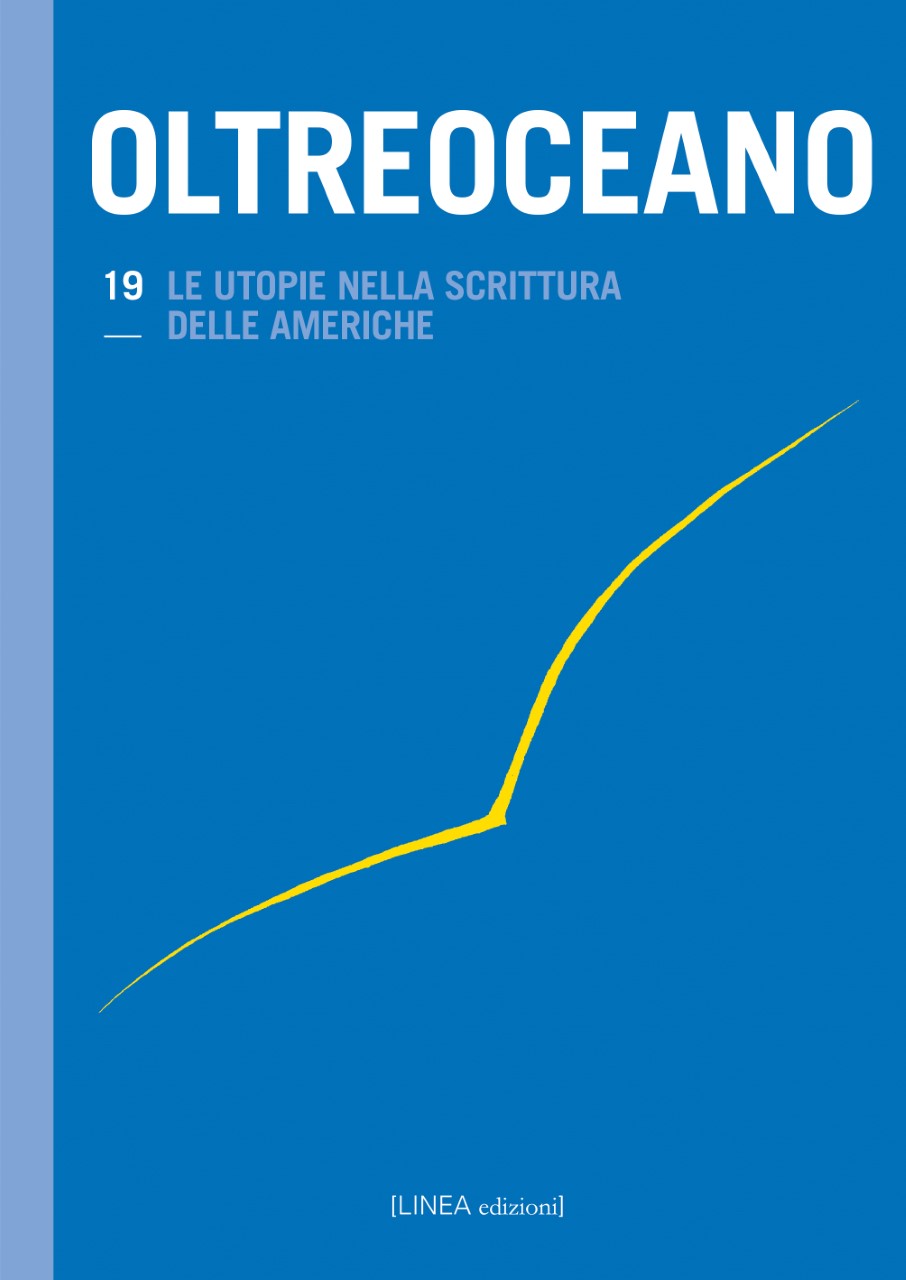La utopía vanguardista de los estridentistas: el Café de Nadie
DOI:
https://doi.org/10.53154/Oltreoceano41Keywords:
vanguardias literarias, estridentismo, café literario, utopíaAbstract
El manifiesto estridentista subvirtió las certezas del imaginario latinoamericano clásico que ubicaba la utopía en la selva de las poblaciones indígenas, para proclamar que el “no-lugar” o lugar idílico era el espacio urbano del café de las tertulias. El café de Nadie (1924) de Arqueles Vela, novela corta titulada como la guarida del grupo en la capital mexicana, es la obra más emblemática de esta vanguardia.
The Avant-garde Utopia of the Stridentists
Stridentism manifesto subverted the certainties of the classic Latin American imaginary that located utopia in the jungle of indigenous populations, to proclaim that the “no-place” or idyllic place was the urban space of the social gathering coffe’s. El café de Nadie (1924) by Arqueles Vela, a short novel titled as the group's lair at Mexico F. D., is the most emblematic work of this avant-garde.
L’utopia d’avanguardia degli stridentisti: El Café de Nadie
Il manifesto stridentista sovvertì le certezze dell’immaginario latino-americano classico che collocava l'utopia nella giungla delle popolazioni indigene, per proclamare che il “non luogo” o luogo idilliaco era lo spazio urbano dei caffè letterari. El café de Nadie (1924) di Arqueles Vela, un romanzo breve intitolato come la tana del gruppo nella capitale messicana, è l’opera più emblematica di questa avanguardia.
Downloads
References
Benjamin, W. (1972): Iluminaciones, II. Baudelaire. Un poeta en el esplendor. Madrid: Taurus.
Campos, M.A. (2001): El café literario en Ciudad de México en los siglos XIX y XX. México: Aldus.
De Mora, C. (1997): Notas sobre El Café de Nadie de Arqueles Vela. Anales de Literatura Hispanoamericana, 26, pp. 249-257.
González Stephan, B. (1986): El Café de Nadie y la narrativa del estridentismo. Texto crítico, 12, pp. 49-64.
Maples Alce, M. (2010): Soberana juventud, 1967. Veracruz: Universidad Veracruzana.
Martínez Fernández, I. (2020): Entre Roma y Atenas: Elio Aristides y el uso político de la utopía altoimperial. En J. de D. Bares Partal & F. Oncina Coves (Eds.), Utopías y ucronías. Una aproximación histórico-conceptual (pp. 91-110). Barcelona: Bellaterra.
Mojarro Romero, J. (2009): Crisis de identidad y modernidad en El café de Nadie de Arqueles Vela. Itinerarios. Revista de estudios lingüísticos, literarios, históricos y antropológicos, 9, pp .53-64.
Monsiváis, C. (1995): Los rituales del caos. México: Era.
Mora, F. J. (1999): El ruido de las nueces. List Arzubide y el estridentismo mexicano. Alicante: Publicaciones de la Universidad.
Oncina, F. (2020): Utopías y ucronías en la teoría de los tiempos históricos de la historia conceptual. En J. de D. Bares Partal & F. Oncina Coves (Eds.), Utopías y ucronías. Una aproximación histórico-conceptual (pp. 13-35). Barcelona: Bellaterra.
Parodi, C. (2006): Fracturas lingüísticas: los estridentistas. Estudios mexicanos, 22, pp. 311-329.
Rodríguez Pérez, C. (2015): El estridentismo. Un movimiento artístico radical. Diacronías. Revista de divulgación histórica, 12, pp. 39-44.
Romero, J.L. (2001): Latinoamérica. Las ciudades y las ideas. Buenos Aires: Siglo XXI.
Schneider, L. M. (1970): El estridentismo o una literatura e la estrategia. México: INBA.
Schneider, L. M. (1985): El estridentismo. México. 1921-1928. México: UNAM.
Schneiner, L.M. (1999): El estridentismo: La vanguardia literaria en México. México: UNAM.
Trilnick, C. (1921, diciembre 31): Hoja de vanguardia. Comprimido estridentista de Manuel Maples Arce. Recuperado de http Actual Nº1 | IDIS (proyectoidis.org)
Vela, A. (1923): El estridentismo y la teoría abstraccionista. Irradiador, pp.1-3.
Vela, A. (2008): El café de Nadie, 1926. Guatemala: Tipografía Nacional.
Zurián de la Fuente, C. & Palomares Salas, C. (2015): El Café de Nadie: aproximaciones al mito. Letras Hispanas, 11, pp. 20-28.
Downloads
Published
How to Cite
Issue
Section
License

This work is licensed under a Creative Commons Attribution-NonCommercial-ShareAlike 4.0 International License.
The authors undertake to comply with the following conditions, which are considered accepted at the time of submission of their contributions.
The sending of a text implies that it is unpublished and not submitted to be published elsewhere.
1. If accepted, the author shall confer on the publisher the right to publish and distribute it both in paper form and in the online electronic edition. The published articles will be downloadable and made available in open access.
2. Provided that it correctly indicates that the first publication took place in the journal Oltreoceano. Rivista sulle migrazioni the author has the right to: a) reproduce the article in separate extracts or collected in a volume; b) publish the article on their personal website or teaching site provided that these sites are of a non-commercial nature; c) deposit the article in online archives of a non-commercial nature, linked to the institution they belong to or as part of projects for the non-commercial dissemination and open access of scientific works.
The use of contributions by third parties, for commercial or otherwise unauthorized purposes, is not allowed. The publisher declines all responsibility for the unauthorized use of the material published in the journal.












